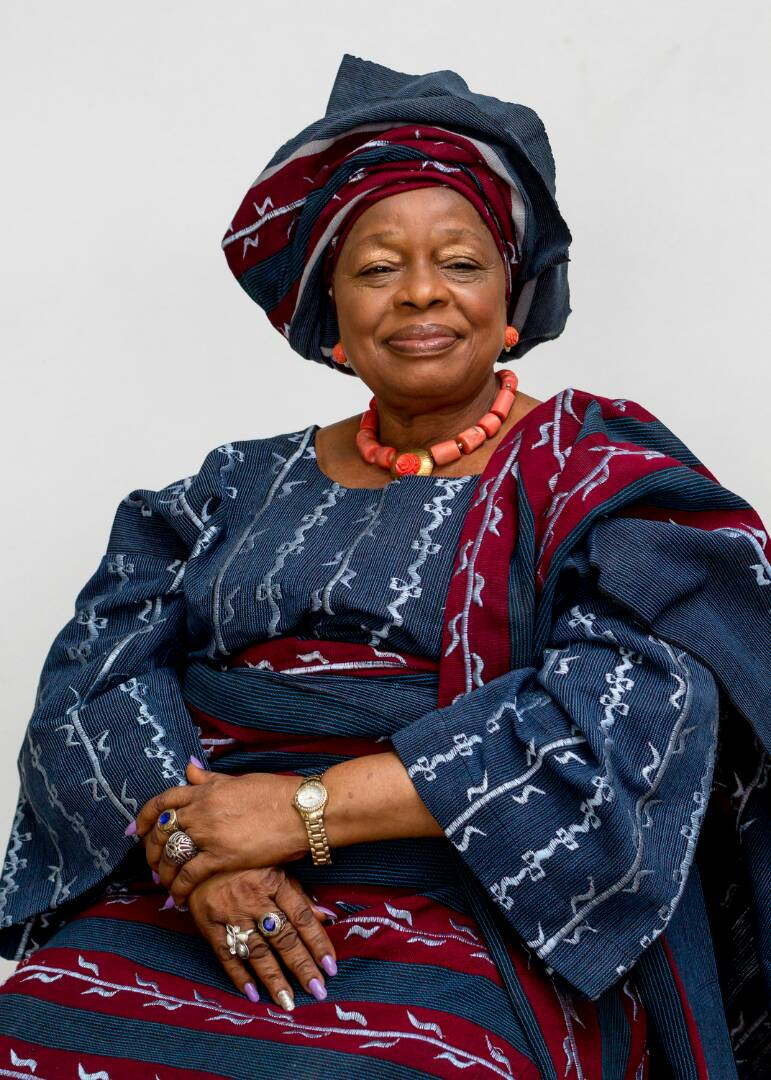Iyalode (title) on:
[Wikipedia]
[Google]
[Amazon]
 The Ìyálóde is a high-ranking female
The Ìyálóde is a high-ranking female
 The Ìyálóde is a high-ranking female
The Ìyálóde is a high-ranking female chieftain
A tribal chief, chieftain, or headman is a leader of a tribe, tribal society or chiefdom.
Tribal societies
There is no definition for "tribe".
The concept of tribe is a broadly applied concept, based on tribal concepts of societies of weste ...
in most of the Yoruba traditional states. The title is currently within the gift of the obas, although Njoku asserted in 2002 that the process of choosing an Ìyálóde in pre-colonial Nigeria was less of a choice by the monarch, and more of the accomplishment and involvement of the woman to be so honoured in economic and political matters.
History
Historically, therefore, the Ìyálóde did not only serve as a representative of women in the council, but also as a political and economic influencer in precolonial and colonial Nigeria. Referred to in Yoruba mythology as Oba Obirin or "King of the Women", an Ìyálóde's views are normally considered in the decision-making process by the council of high chiefs. In 2017, Olatunji from Tai Solarin University of Education likened the role played by an Ìyálóde to that of modern dayfeminism
Feminism is a range of socio-political movements and ideology, ideologies that aim to define and establish the political, economic, personal, and social gender equality, equality of the sexes. Feminism holds the position that modern soci ...
. He went further by explaining that a 19th century Ìyálóde, Madam Tinubu
Efunroye Tinubu ( 1810 – 1887), born Ẹfúnpọ̀róyè Ọ̀ṣuntinúbú, was a powerful Yoruba people, Yoruba female aristocrat, merchant, and slave trader in pre-colonial and colonial Nigeria.
She was a politically and economically influ ...
, was one of the richest people in Yorubaland
Yorubaland () is the homeland and cultural region of the Yoruba people in West Africa. It spans the modern-day countries of Nigeria, Togo and Benin, and covers a total land area of . Of this land area, 106,016 km2 (74.6%) lies within Niger ...
, and served as a major player in who became king in both
Lagos
Lagos ( ; ), or Lagos City, is a large metropolitan city in southwestern Nigeria. With an upper population estimated above 21 million dwellers, it is the largest city in Nigeria, the most populous urban area on the African continent, and on ...
- where she married an oba - and Egbaland - where she contributed to the war effort of her fellow Egbas.
Mosadomi opined that the influence of the Ìyálóde has never been limited to being just among the women, but transcends her official duties and includes the entire political, cultural and religious structure of the Yoruba people, citing Tinubu and Efunsetan Aniwura as obvious examples. Sofola (1991) corroborates this by stating that "No matter how powerful an Oba may be, he can never be an Ìyálóde". According to Professor Olasupo, the authority of the Ìyálóde title in modern Nigeria is not as extensive as it once was. An Alaafin of Oyo, Lamidi Adeyemi, identified cultural extinction caused by "modernity" as reasons for the development. He recalled that women had more important roles in the leadership circle of Yorubaland in the past. For example, Tinubu is reported to have wielded so much power that she stopped the Oba of Lagos
The Oba of Lagos, also known as the Eleko of Eko, is the Nigerian traditional rulers, traditional ruler (Oba (ruler), Oba) of Lagos.
The Oba is a ceremonial Yoruba people, Yoruba sovereign with no political power, but is sought as a counsel ...
from making Lagos a British colony for a period.
See also
* Erelu Kuti * Iyoba * Queen mothers in AfricaReferences
{{reflist Yoruba words and phrases Women in Nigeria Yoruba politics Noble titles of women African traditional governments African noble titles